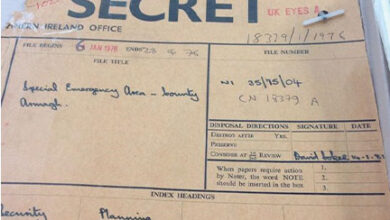Executive formation deadline extended

In November 2022, the UK Government introduced the Executive Formation Bill, granting parties a 12-week extension for the formation of an Executive. The Northern Ireland Office has rationalised that the legislation will “allow for more time and space for Executive formation, avoiding an unwanted election”.
Previous legislation, the Northern Ireland (Ministers, Elections and Petitions of Concern) Act 2022, gave an allowance of up to 24 weeks for the formation of an Executive after the election in May 2022. Although he was legally obliged to do so under this legislation, Secretary of State Chris Heaton-Harris MP declined to call an election, instead spearheading the passage of new legislation extending the deadline until April 2023.
The Bill marks the latest change in approach from the Northern Ireland Secretary, who has attempted a charm offensive with the Irish Government with some degree of success, as well as an attempt at strong-arming parties into forming an Executive, previously threatening to call an election. When the previous deadline for forming an Executive passed in October 2022, Heaton-Harris subsequently changed his mind and declined to call an election.
The Northern Ireland Office has stated that the Bill will clarify the limited decision-making powers to be provided to civil servants in the absence of ministers, maintain public service delivery, and will enable a small number of vital public service appointments to be made and enable the regional rate for 2023/24 to be set should an Executive not be in place to do so.
The legislation will also allow the Secretary of State to set MLA salaries in the absence of an Executive, with an independent review recommending a cut of 27.5 per cent, meaning that MLAs will still be paid in the region of £35,000.
Northern Ireland currently has no functioning Executive in the aftermath of the May 2022 Assembly election, which saw Sinn Féin emerge as the largest party for the first time, as the DUP continue to boycott the devolved institutions due to the party’s opposition to the Northern Ireland Protocol.
It appears unlikely that an Executive will be formed in the immediate future, amid ongoing tensions concerning the failure to invite Sinn Féin leader Mary Lou McDonald TD to discussions on the Protocol with Heaton-Harris and UK Foreign Secretary James Cleverly MP in Belfast.
The British Government has stated that this was due to diplomatic protocol, as the Foreign Secretary is required to meet with his Irish counterpart, Micheál Martin TD, prior to meeting a member from an opposition party in Dáil Éireann.
Sinn Féin vice president Michelle O’Neill MLA and SDLP leader Colum Eastwood MP subsequently refused to meet the UK Government representatives, with Eastwood stating that the British Government’s rationale that only members of the Assembly could be invited could not be true, as both he and DUP leader Jeffrey Donaldson MP were invited, despite they themselves not being members of the Assembly.





